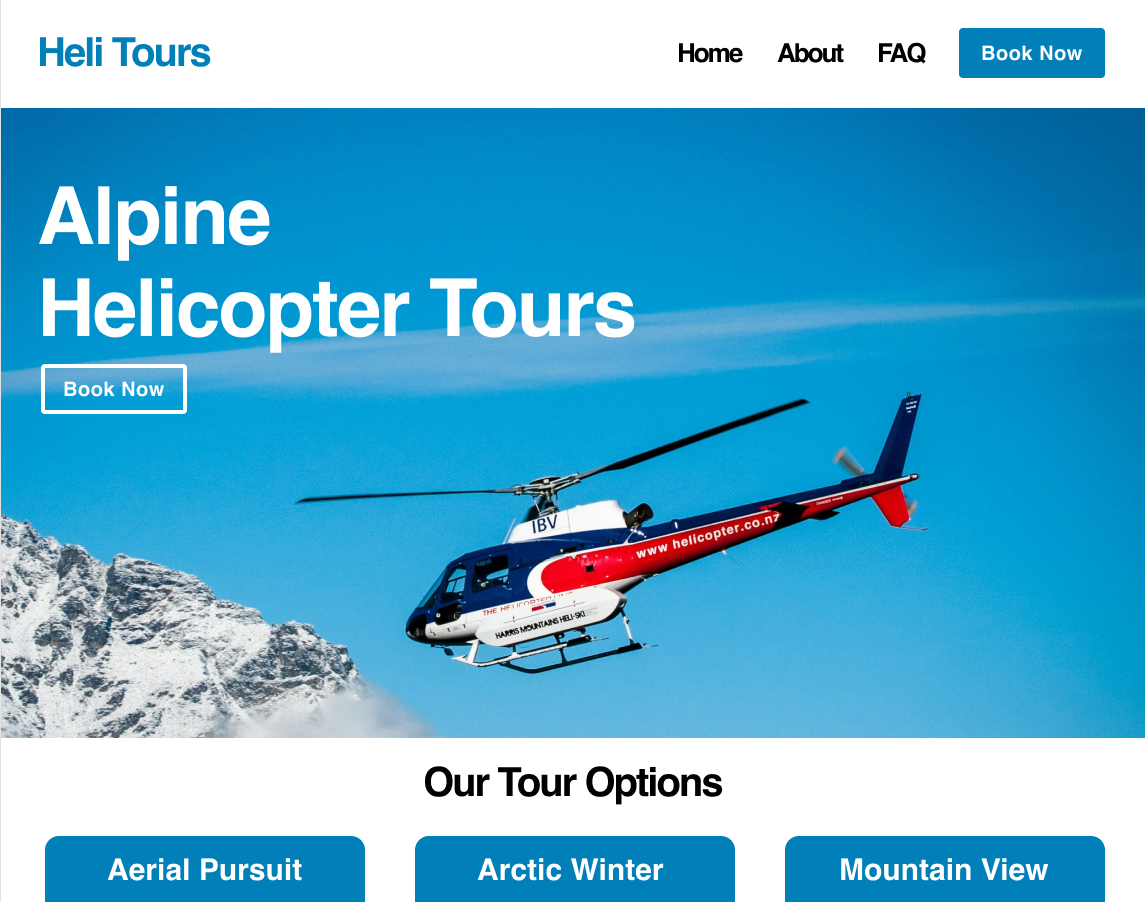FareHarbor Sites Alternatives in 2025
Jarod LaFalce
Co-Founder / COO of BookingTerminal
Published on: August 27, 2025 | Estimated Read Time: 5 minutes
Introduction
For years, FareHarbor's booking software has been the go-to for tour operators. Alongside it, their website product—FareHarbor Sites—was a convenient, low-cost solution. But in 2025, that changed. The price for a FareHarbor Sites website jumped to $5,000 annually, with an additional $5,000 for optional SEO services. That's a hefty $10,000 per year.
This price tag exceeds what many web development agencies charge for a templated site. While FareHarbor Sites remains a solid product—offering customization, conversion-focused design, and quick setup—the value proposition has shifted.
If you're considering alternatives, you're not alone. Many operators are exploring options that offer similar benefits without the steep cost. In this post, we'll explore the best FareHarbor Sites alternatives in 2025, helping you find a solution that fits your needs and budget.
BT Pages
BT Pages is BookingTerminal’s website solution. Using our high-converting, customizable templates, we help you showcase your business and offerings in a way that actually works. We handle everything—design, hosting, and management—so it’s completely off your plate. On top of that, your site comes with SEO-optimized content from day one, giving you a strong foundation to grow your online presence.
When you combine BT Pages with BookingTerminal’s software, you not only get a powerful duo built to boost your bookings, but we also discount the site to just $25/month. You get a professionally built webpage, a booking system to manage it, and a team that’s always available to help you out.
Compare Your Options
BT Pages
$25 / month
- ✔ Customizable high-converting templates
- ✔ Hosting + management included
- ✔ SEO-optimized content from day one
FareHarbor Sites
$10,000 / year
- ✔ Website + SEO services
- ✔ Hosting and ongoing support
- ✔ Managed design with templates
Web Development Agencies
If you have a larger budget, a web development agency can build and manage a site tailored to your brand. You’ll have full control over design, layout, and functionality, allowing you to create a site that’s completely unique to your business. Many agencies also handle ongoing updates, integrations, or SEO strategy, giving you a hands-off experience once the site is live.
This option is a solid choice for operators who want a fully personalized site and are comfortable with a higher upfront investment, especially if you have complex requirements or want a distinct brand presence.
Web Development Agencies: At a Glance
Pros
- ✔ Fully custom design
- ✔ Unique brand presence
- ✔ Ongoing support & SEO available
Cons
- ✖ Higher upfront investment ($3k–$10k+)
- ✖ Longer build timelines
- ✖ Possible ongoing retainers
Best for operators who want a completely unique brand experience and are comfortable with higher costs.
DIY Website Builders
If you’re looking for a lower-cost option with room for customization—and don’t mind putting in some work—website builders are worth checking out. These platforms make it easy to design your site and launch quickly, but they don’t always cover everything. Hosting, security, and ongoing maintenance might still be on you, depending on the plan you choose.
For an all-in-one route, Squarespace is a solid pick. It’s user-friendly, has a drag-and-drop builder, includes hosting, domains, and automatic updates, and takes care of most of the technical headaches. Pricing is reasonable, and there are different plans depending on the features you need. Other popular names in this space are Wordpress, Wix and Weebly, but I usually recommend Squarespace because it balances simplicity with flexibility.
DIY Website Builders: At a Glance
Pros
- ✔ Affordable monthly plans ($15–$30/month)
- ✔ No-code builder
- ✔ Hosting & domains included sometimes
Cons
- ✖ Requires your time & effort
- ✖ Learning curve
- ✖ No SEO guidance
Best for operators who want control at a lower price point and have time to manage the site themselves.
Other Booking Platform Website Options
Other booking platforms also offer website products for their clients. Some of these offerings take a similar approach as FareHarbor and BT Pages—fully managed and built on internal templates. Others are more of a DIY builder that helps you aggregate the information from your offerings.
Xola falls into the first category. Their website option is template-based and managed by their team, with direct integration with the Xola booking system. The setup and design are handled internally, which takes the responsibility off the operator but also limits customization compared to more flexible approaches.
Bokun takes a different approach. Their website builder is a do-it-yourself tool where operators select from templates, add their own branding and content, and use built-in booking widgets. It provides more hands-on control, but it also requires the operator to manage the site themselves once it’s live.
Conclusion
FareHarbor Sites has long been a convenient option, but the 2025 price increase has forced many operators to reconsider whether it’s still the right fit. The good news is that there are plenty of alternatives, each with its own strengths depending on your budget, level of involvement, and long-term goals.
If you want a low-cost, hands-off solution, BT Pages keeps things simple and affordable while also handling your booking management. For those with bigger budgets and more complex needs, a web development agency might be a better fit. If you’re willing to build it yourself, DIY website builders like Squarespace offer an easy entry point.
At the end of the day, the best choice comes down to what matters most for your business: cost, control, or convenience. By weighing these factors, you’ll be able to land on a website solution that supports your bookings without draining your budget.

Ready to see BookingTerminal and BT Pages in action? Book a demo now.